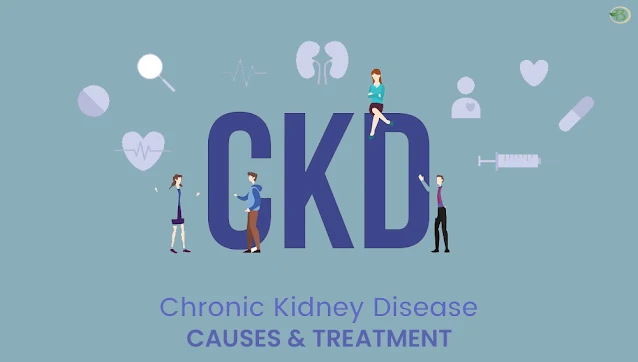Determining the Root Causes of Chronic Kidney Disease and Formulating a Course of Treatment
Homeopathy offers a holistic approach to treating chronic kidney sickness by addressing individual symptoms and restoring the body's equilibrium. Reducing symptoms, stopping the progression of the disease, and improving overall management of chronic kidney disease causes and treatment are the objectives of homeopathic treatment. It is essential to consult a certified homeopathic practitioner for customized care based on individual symptoms and medical history.
Lifestyle modifications are just as important for managing the causes and treatments of chronic kidney disease causes and treatment as homeopathic therapy. Patients are often recommended to follow a balanced diet low in sodium, potassium, and phosphorus to minimize the strain on their kidneys. In addition, it is recommended to support the causes and treatments of chronic renal disease generally by engaging in regular exercise, drinking adequate water, and quitting smoking.
In addition, stress-reduction techniques like yoga, meditation, and deep breathing exercises may improve CKD patients' quality of life and help them manage their symptoms. These methods not only promote relaxation but also enhance overall welfare, which is especially important for those with chronic medical conditions.
Other Kidney Failure Treatments Besides Dialysis
End-stage renal disease (ESRD), often known as kidney failure treatment without dialysis, is a significant challenge to medical personnel and patients alike. Despite being a common treatment option, some people may not be excellent candidates for dialysis or may wish to explore other choices. Treatment options for non-dialysis renal failure focus on all-encompassing approaches to manage symptoms, slow the progression of the condition, and improve overall quality of life. Dietary and lifestyle modifications are important; kidney-friendly diets low in sodium, potassium, and phosphorus, along with maintaining a healthy weight and regular exercise regimen, are prioritized. Furthermore, proper fluid management is essential to preserving the body's fluid balance and preventing fluid overload. To protect renal function and reduce the risk of complications, blood pressure must be controlled with medication and lifestyle modifications. The objectives of symptom management techniques, such as physical activity and relaxation techniques, are to lessen discomfort and enhance wellness. Effective Intervention Methods for Managing Elevated Creatinine Levels Elevated blood creatinine levels could indicate impaired kidney function, which should be treated immediately to prevent things from getting worse. management options for high creatinine aim to address the underlying causes of renal failure and encourage dialysis-free kidney failure treatment without dialysis management. Dietary adjustments are crucial, with a particular emphasis on reducing the intake of animal protein to lessen the burden on the kidneys. Reducing the amount of meals high in potassium and phosphorus can also assist ease the strain on the kidneys. One needs to drink enough water to support kidney function and promote the body's waste products to be expelled. The entire high creatinine treatment plan includes modifying one's lifestyle to include regular exercise, quitting smoking, and consuming less alcoholic beverages. Since high blood pressure can impair renal function and increase creatinine levels, it is important to monitor and control blood pressure. Yoga, deep breathing techniques, and other stress-reduction techniques can help reduce physiological stress reactions and promote relaxation, which in turn can help lower creatinine levels.
Ways to Improve Health: Choices for Kidney Failure Treatment
Dialysis is a common treatment option for patients with renal failure. It entails employing artificial means to drain excess fluid and waste products from the circulation. Treatment for kidney failure at a dialysis center and at-home peritoneal dialysis offer different approaches to achieve the same goals. Kidney transplantation is an additional successful therapeutic option that may be superior to dialysis for those who meet the eligibility requirements in terms of long-term survival and quality of life. However, locating a suitable donor and carrying out the transplant process can be challenging and require a protracted waiting period. In addition to these medication interventions, lifestyle modifications are necessary for the management of renal failure. Adopting a kidney-friendly diet low in salt, potassium, and phosphorus can help control symptoms and slow the course of the illness, in addition to maintaining a healthy weight and doing regular exercise. Effective blood pressure control, stress reduction, and fluid management are also essential components of Treatment for kidney failure.




Comments
Post a Comment